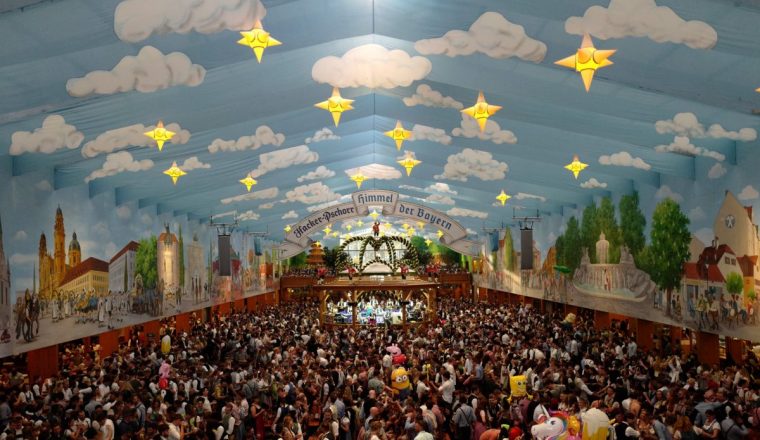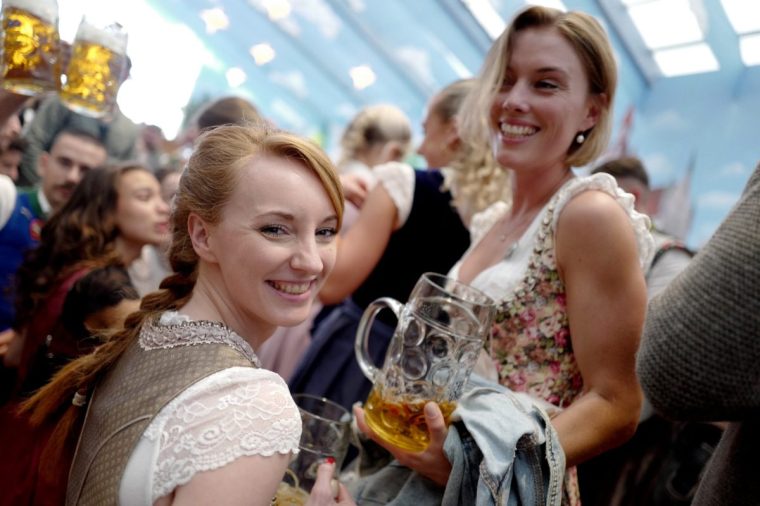As Munich welcomes millions of visitors to its celebrated Oktoberfest, the festival of beer, food and fun remains as vibrant as ever, even if this year it comes with an extra layer of security this year after a deadly knife attack in the summer.
Metal detectors are being used for the first time in the Bavarian beer festival’s 189-year history, and visitors will be banned from bringing knives, glass bottles and backpacks.
Officials pledge that the Wiesn, as the Oktoberfest venue is known, will be “the safest place in Germany,” with some 600 police officers and 2,000 security staff in and around the fenced-off zone of revelry, supported by more than 50 cameras.

The new measures follow last month’s attack at a city festival in Solingen in western Germany by a Syrian asylum seeker apparently linked to the Islamic State (IS) terrorist group, which left three people dead and eight more wounded. The stabbing shook the country and helped propel immigration to the forefront of political debate – with the interior ministry last week imposing border controls on all nine of Germany’s frontiers last week.
Terror threats and extra security measures have been seen elsewhere.
In June, a policeman was stabbed to death in the southwestern German city of Mannheim, while several people were injured in a stabbing attack on a train in November 2021.
French authorities foiled three plots to hit the Olympic and Paralympic Games in Paris in July and August, while Taylor Swift cancelled her Vienna tour dates over a threat allegedly inspired by IS.
However, none of this security should overshadow the event, according to Silja Steinberg, who runs the marquee for Hofbräu, one of just six beers authorised at the event.

“I think it’s necessary for the people that they feel safe, and yes, it takes a little bit longer to get in the area,” she told i. “We have had attacks before. But the media has made it bigger than it really should be.”
Frau Steinberg, who is also the landlady of the Hofbräukeller, said both hosts and visitors were more concerned about the impact of rain on the festival. “Rain is the big threat,” she said. “But we’re not that worried anyway. Everyone likes the Oktoberfest because they know they are safe. It’s peaceful. Everybody is just here to have fun, to celebrate, to connect.”
The city has also worked hard to strike a balance between creating a secure environment and preserving the festive charm of Oktoberfest. Authorities made sure to inform the public about the new security protocols through social media and press releases, allowing visitors to prepare for the changes and adjust their expectations.
Oktoberfest, which began in 1810 as a celebration of the Bavarian Crown Prince Ludwig’s marriage, has grown into one of the largest festivals in the world, with more than six million local and international tourists expected to flock to Munich’s Theresienwiese to raise a stein and enjoy traditional Bavarian food.
Besides almost two centuries of Oktoberfests, the city of Munich has more recent experience with huge events, hosting six matches in the Euro 2024 football championships this summer and the singer Adele for a special 10-day residency in August.
While the heightened security might seem like a potential hindrance to the carefree atmosphere of Oktoberfest, it has barely dented the enthusiasm of festivalgoers over its 16-day run, which ends on 6 October.
Long lines for security checks have become routine, but the festive spirit prevails once inside. Visitors still dress in traditional Bavarian attire, including Lederhosen leather shorts for men and the dirndl dress for women, while bands play jaunty tunes, and the air is filled with the aroma of pretzels, bratwurst, and Wiesn Hendl roasted chicken.

